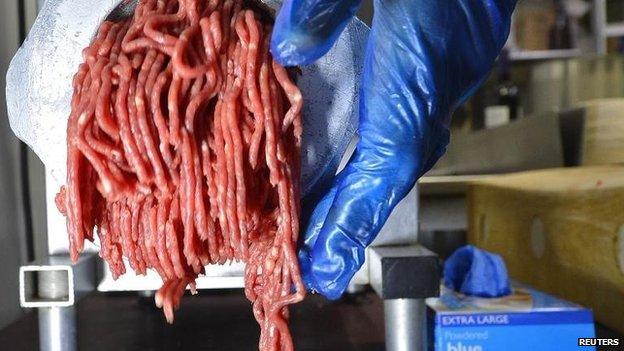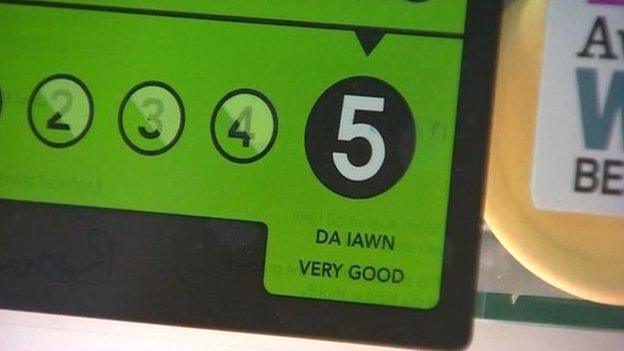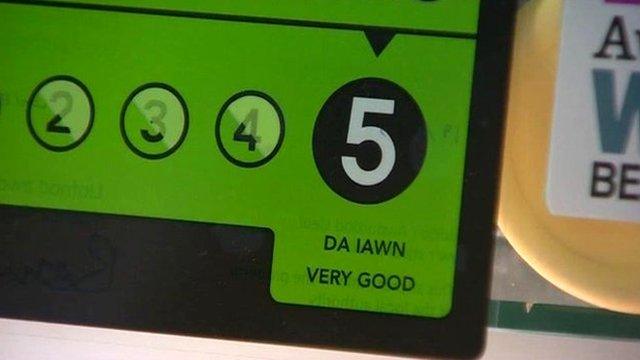Food hygiene rating law now covers producers
- Published

Food producers and wholesalers must now display ratings to their trade customers
A food hygiene law forcing shops and restaurants in Wales to display their ratings is being extended to include food producers and wholesalers.
The announcement comes on the first anniversary of the scheme's launch.
Trade-to-trade businesses will now be given ratings and told to display them under threat of prosecution.
Deputy Health Minister Vaughan Gething said food hygiene ratings were a "great success" and the extension would give people "added assurance".
Wales was the first UK nation to introduce a statutory food hygiene ratings system in November 2013.
The Food Hygiene Rating (Wales) Act, external requires any business selling food directly to customers to display their food hygiene rating prominently.
These include restaurants, pubs, cafes, takeaways, hotels and supermarkets.
'Positive impact'
As of Monday, the law also covers trade-to-trade food businesses such as wholesalers.
After a local authority inspection, they will now be issued with a sticker showing their rating to be displayed on their premises.

Scores on the doors: Food hygiene ratings are a 'great success', say ministers
Any firm failing to display their sticker faces a fixed penalty fine of £200 or prosecution.
Bosses and workers must also tell their customers what their food hygiene rating is when asked.
'Important step'
The extension comes on the first anniversary of the scheme, which has had "a positive impact" on food hygiene standards, the Welsh government said.
More than half of food retailers had achieved the top rating of five, with more than 92% being assessed as satisfactory or better, it added.
Mr Gething said the extension to food producers was "an important step, which will provide added assurance to businesses and consumers".
"The requirement for businesses to display their food hygiene stickers is having the effect we envisaged in driving up food hygiene ratings," he said.
"I'm delighted to see the numbers of food businesses with a lower rating decreasing. This is good for the people in Wales and for food businesses in Wales.
"I acknowledge the significant work that local authorities have put into this scheme to make it a success against a background of tighter budgets and fewer resources."
- Published11 October 2014

- Published28 August 2014

- Published12 December 2013

- Published28 November 2013
